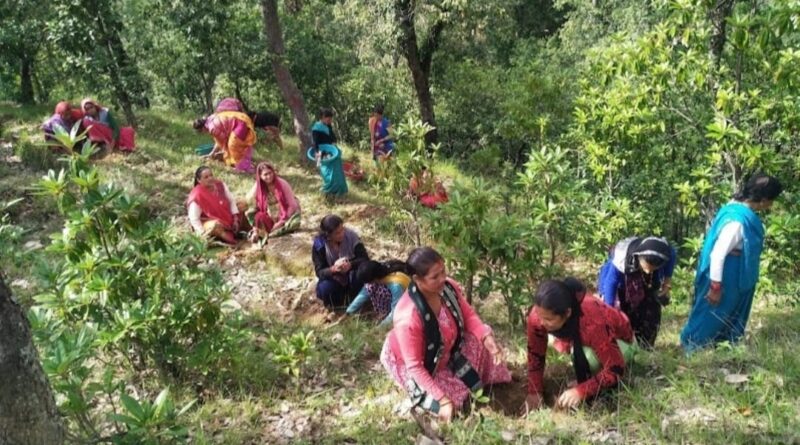Forest Evictions and Implementation of the Forest Rights Act in Himachal Pradesh: A Critical Overview
The issue of forest land occupations in Himachal Pradesh has persisted despite the enactment of the Scheduled Tribes and Other Forest Dwellers (Recognition of Forest Rights) Act, 2006 (FRA). This law aims to safeguard the rights of forest-dependent communities—both Scheduled Tribes (STs) and Other Traditional Forest Dwellers (OTFDs)—who have been residing on forest land for generations.
Although the FRA provides a legal framework for recognizing forest rights, its implementation in Himachal Pradesh has been marred by delays, judicial interventions, and a lack of awareness among stakeholders, including affected communities and policymakers. The state’s failure to act promptly has led to evictions and legal battles, depriving legitimate claimants of their constitutional rights.
Key Developments in the Implementation of FRA
The implementation of FRA in Himachal Pradesh has been a slow and complex process. Some critical milestones include:
- 2012: The state government decided to implement FRA in non-tribal areas.
- 2013-2016: Village-level Forest Rights Committees (FRCs) were constituted, but procedural flaws led to ineffective execution.
- 2018: Court cases like Dev Raj vs. State of HP highlighted the lack of due process in eviction orders.
- 2020: Himachal Pradesh Tribal Department published its first official FRA training manual, years after evictions had already begun.
- 2024: High Court rulings reinforced eviction orders, stating that forest land encroachments could not be regularized without Central Government approval.
- 2025: The Supreme Court overturned some eviction orders due to procedural lapses but maintained strict eviction policies in other cases.
Challenges in Implementing FRA
1. Conflict Over Forest Classification
Disagreements between the Forest Department and Revenue Department on defining and classifying forest land have created legal confusion. This ambiguity affects governance, land ownership claims, and the enforcement of FRA.
2. Delayed Implementation in Non-Tribal Areas
Despite political promises, the government failed to implement FRA in non-tribal areas on time. This delay resulted in many forest-dependent communities being evicted without the legal safeguards that the FRA provides.
3. Lack of Awareness Among Affected Communities
Due to a lack of awareness programs, many forest dwellers were unaware of their rights under the FRA. By the time the government published a training manual in 2020, evictions had already begun.
4. Evictions Based on Pre-FRA Policies
Many eviction orders are based on pre-2006 state policies that do not consider the FRA’s protective provisions. Since communities were unaware of the FRA at the time, they failed to invoke its protections, leading to large-scale evictions.
5. Contradictory Judicial Orders
Court rulings have been inconsistent. For instance:
- 2017: High Court allowed the government to regularize small forest holdings.
- 2024: The same court overturned this decision, leading to forced evictions without considering FRA provisions.
6. Judicial Recognition of FRA as a Legal Framework
The Supreme Court’s 2025 ruling emphasized that eviction orders must follow natural justice principles and fair procedures. It mandated:
- Proper demarcation of forest land before eviction.
- Notices and hearings for affected families.
- Training for officials handling eviction cases.
Recommendations and Way Forward
- Government Intervention in Courts: The Himachal Pradesh government should intervene in ongoing eviction cases to ensure FRA is considered before any eviction orders are passed.
- Transparent Implementation of FRA: The government must speed up the recognition of forest rights in non-tribal regions.
- Judicial Consideration of Delayed FRA Implementation: Courts should account for the delayed enforcement of FRA when deciding eviction cases.
- Awareness and Training Programs: Affected communities need proper training on filing FRA claims. Government officials handling eviction cases must also be trained on FRA provisions and legal procedures.
- Defining “Bonafide Livelihood”: To prevent misuse of FRA by large encroachers, the government should cap land claims at 10 bighas, aligning with Himachal Pradesh’s revenue laws.
Conclusion
The implementation of the Forest Rights Act in Himachal Pradesh remains flawed, with bureaucratic delays, legal battles, and policy inconsistencies jeopardizing the rights of forest dwellers. The government must act swiftly to ensure fair implementation of FRA and prevent unjust evictions. A transparent and legally sound approach is crucial to securing the livelihoods and constitutional rights of thousands of forest-dependent families in the state.
( Prepared by Himdhara Environmental Research and Action Collective )



